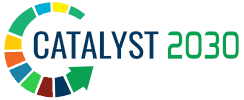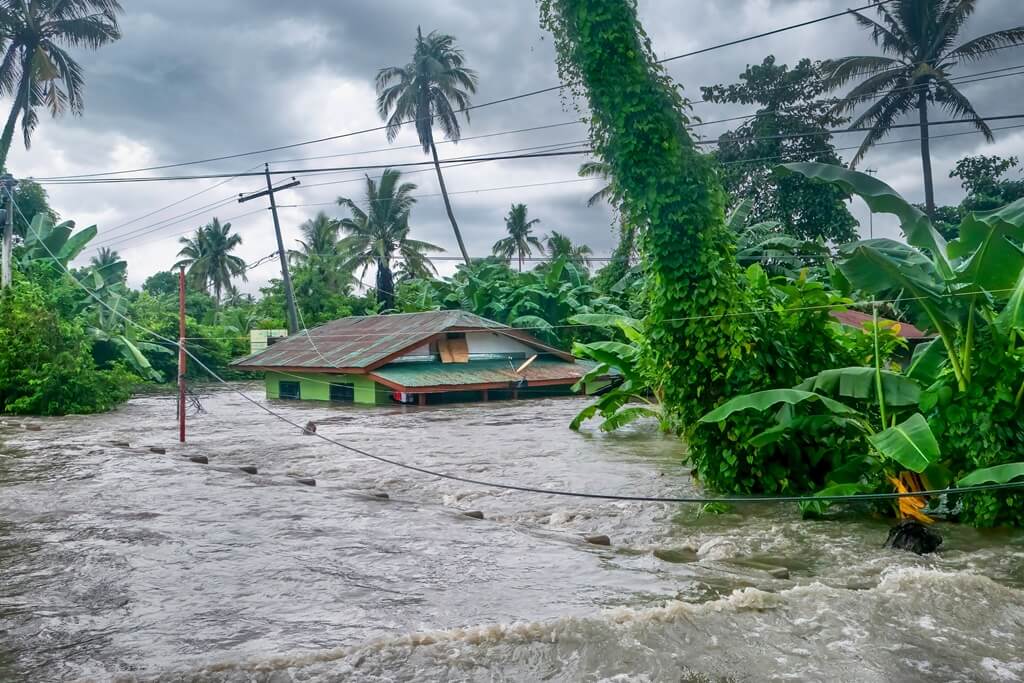
Catalyst 2030 Disasters Group transforming disaster management
We have all been shocked by the impact of the earthquakes in Turkey which cast a pall over the start of 2023. Nearly 45,000 people perished and a further 100,000 were injured as a result of the February disaster which drove 2,2 million people from their homes.
“Natural disasters are on the rise,” points out Alan Braithwaite, Chair of Catalyst 2030’s Disasters Group, “And disasters resulting from conflict and climate leading to famine and poverty also play out on our screens.” Given the scale and sheer numbers of disasters which will inevitably involve members, the Disasters Group was formed by members concerned about the impact on humanity.
Scale of impact
The staggering loss of life, injury and displacement in devastating conditions in Turkey, are unimaginable. As is the extent of relief and support services required. For example, an estimated 500,000 people needed to be evacuated by official agencies.
The floods and landslides in Pakistan, during the second half of 2022, were also catastrophic. Nearly 2,000 people lost their lives and the resulting damage cost the country $15 billion. The effects are still being felt, with 4,5 million people remaining exposed, or living in proximity, to flooded areas.
Sadly, for the rest of the world, this disaster now seems like a distant memory.
Disasters on the rise
Yet natural disasters – in the form of extreme weather, floods, droughts, wildfires, volcanoes, earthquakes and disease – have increased in frequency to more than one a day across the world. In 2020 alone, they affected more than 100 million people and cost $170 billion.
Death, displacement and mass migration resulting from conflict and poverty add to the levels of human tragedy.
Many disasters are predictable, though their scale, impact and timing are variables. Yet there are inadequate mechanisms in place to avoid or mitigate them. When the inevitable happens, the impact is often worse than necessary and the slow response rate compromises long-term recovery.
Disasters can, and must, be managed better.
Social innovators for disaster management
This is where Catalyst 2030 comes in. The Disasters Group aims to overcome current disaster response limitations with a new approach that positions social innovators as a key resource in the future of global Readiness, Response and Recovery.
There is growing recognition that strengthening local resources to counter or deal with the impact of disasters, achieves the best outcomes. This is why the Catalyst 2030 Disasters Group, under the banner of Make Local Central, aims to promote a move to localising disaster management. This approach sees social innovators and their communities collaborate with national and international agencies to co-create a new operating model for managing disasters.
Disasters, when they occur, should be the business of Catalyst members.
Guiding light – Goonj, India
The work of Goonj, a founding member of Catalyst 2030, is a key inspiration for the Catalyst 2030 Disasters’ Group.
Goonj is a pan-India social innovation and non-government organisation working with under-resourced communities across 24 Indian states. The organisation is unique across the world in its scale and coverage.
Founded 23 years ago, Goonj has made disaster relief a key part of its work in a country where disasters are a frequent occurrence.
GARRD model
Goonj has established the Goonj Alliance for Rapid Response on Disasters (GARRD) model which incorporates the following elements, spelled out in the graphic below:
- A collaborative urban and rural network to respond to disasters
- Disaster response embedded in the work of alliance members
- Engaging during non-disaster times to strengthen disaster management
- Defined resource commitments in preparations for disasters.
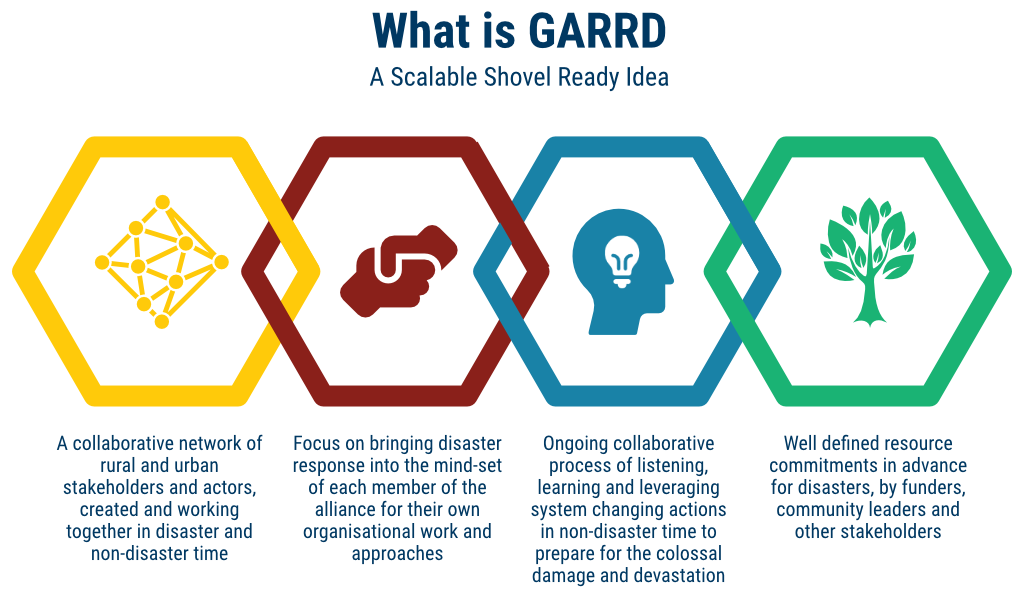
Goonj has become a trusted partner with established capacity across India. It can mobilise the communities they work with and have invested in the training and development of their teams across the country.
The emphasis at Goonj is on the dignity and self-determination of the communities where they work: putting people first – making local central.
Replicating this model
The Catalyst 2030 Disasters Group is setting out to replicate this model in other parts of the world – but we are starting from a long way back. We have to develop our teams and create new collaborations and networks. And we have to do that across the world in varied environmental, political and societal circumstances.
Making the vision real
The Disaster Group is taking some early steps to develop the operating model based on East Africa, out of Uganda. The approach taken is based on Good Management Practice and established academic thinking.
The diagram below illustrates the overall approach.
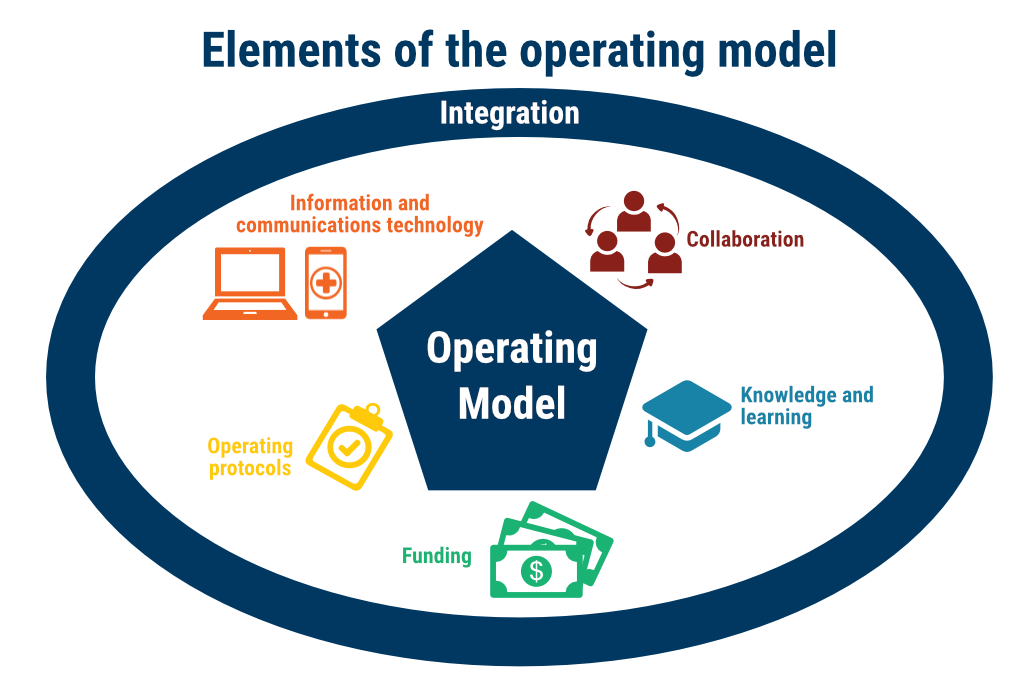
In summary the approach covers:
- Identifying interest and enlisting local capacity among social innovators
- Establishing capabilities and developing training
- Building wider networks with government and international agencies
- Identifying Information and Communication Technology (ICT) solutions that can be applied
- Developing operating protocols with the partners across the network to define how we work together in operational situations
- Obtaining additional funding
Spotlight on Turkey
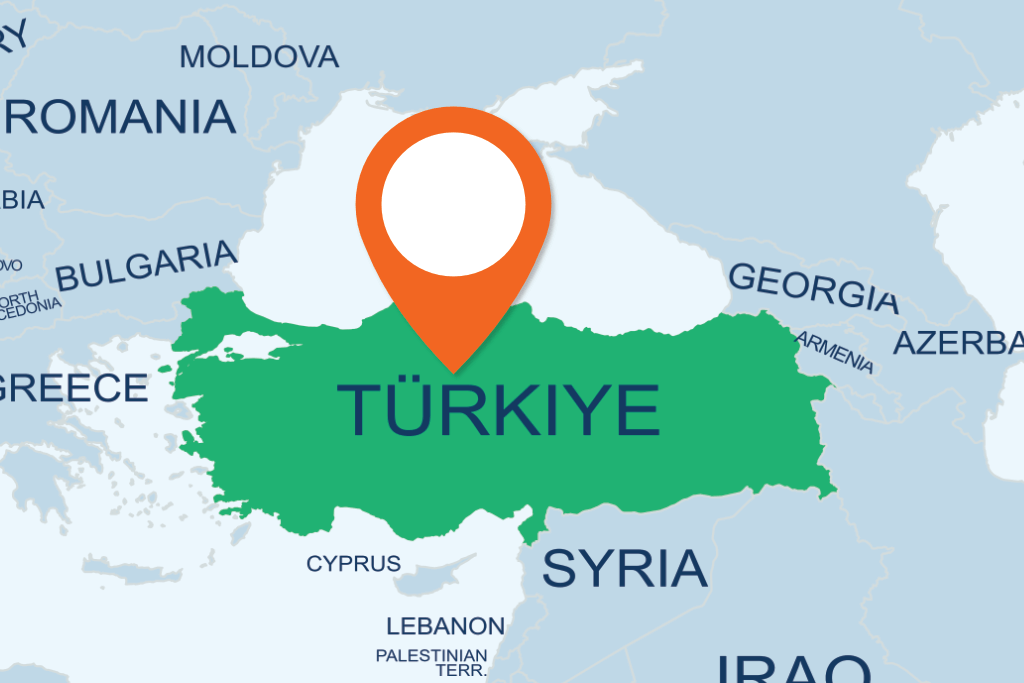
Distressed and concerned about the human suffering, a small group from the Catalyst 2030 network met to discuss our response. This meeting included the Catalyst Secretariat, Regional Coordinators from MENA and Europe, a Turkish Catalyst member and the chair and co-chair of the Catalyst Disaster Group.
Building collapse, compounded by poor quality and unregulated construction methods, is the main issue. Despite the fault line being a known risk, there was poor preparedness.
The scale of the re-build will be enormous. The epicentres were in places that are now very difficult to reach. The immediate priority is heavy lifting and cutting capability, to provide survivors with shelter, food and medical support. Getting rescue resources and humanitarian relief is primarily a logistics challenge.
The Disaster Group can’t help with this. But we can get involved in the recovery and rebuild stage. That will be our focus. We have connected with the Catalyst membership in Turkey. We are now trying to build a network and discover where Catalyst and its connections can be of help as we look towards rebuilding.
The situation in Northern Syria remains unclear because it is a conflict region.
Catalyst 2030 has no direct on-the-ground capacity or with an organisation to make a difference in the short-term. Please watch for updates, as and when we make progress.
How you can help?
If you relate to this vision for a new model of disaster management – we want to hear from you, get you into the team and explore how we can collaborate.
- Wherever you are in the world?
- Whatever skills you think you can bring?
- And for your connections and wider network for both collaboration and funding?
Our work is not restricted to East Africa – that is just where we have chosen to start.
Please reach out to Alan Braithwaite, Chairman of the group at disastersibg@catalyst2030.net or +44 7802 795444.
